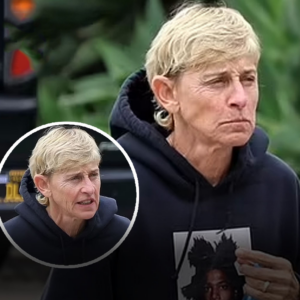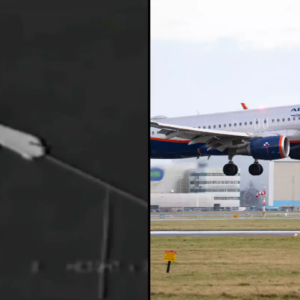A painfully revealing memoir, taken from transcripts of reminiscences Newman recorded in the 1980s, lays bare a candid, complicated star

Movie stars, bemused by their own magnified faces, don’t usually have much interest in self-analysis. Paul Newman turns out to be the ruthlessly candid exception. In the late 1980s, between beery binges, Newman recorded endless hours of reminiscences, trying finally to understand the insecure, inadequate stranger who skulked behind his handsome facade. Probably alarmed by what he’d revealed, he later destroyed the tapes. But after his death in 2008, 14,000 pages of transcripts were discovered in his musty Connecticut basement and in a storage locker; these have now been cut and pasted into an autobiography, supplemented by contributions from colleagues and family members. The result is startling: Narcissus breaks the mirror, leaving only some cruelly jagged shards.
In the early 1950s, Newman seemed the most unthreatening of Hollywood’s angry young men – less eruptive than Marlon Brando, less twitchy than Montgomery Clift, less surly than James Dean. Tempering the fury unleashed by the others, he played a redeemed hoodlum in Somebody Up There Likes Me and an introverted outlaw in The Left Handed Gun. Eventually, as a wise-cracking robber in Butch Cassidy and the Sundance Kid and a playful gambler in The Sting, he settled down to be wry and irresistibly charming. But his book hardly mentions roles like these; instead, he ridicules “this goddamn movie star with blue eyes cast as a half-Apache in Hombre”. Overcome by a sense of unworthiness that festers into self-contempt, he calls himself “that decorative little shit”, a merely ornamental creature with an empty centre.

His mother takes most of the blame. Her crime was to adore him, as the fans he cold-shouldered later did. She dandled him like a doll and he compares himself to the lapdogs she stuffed with chocolates until they “became so cancerous and obese they could hardly move”. Stifled by her cosseting, he refused to reciprocate affection and developed a protective “carapace of indifference”. That explains why many of his later performances – for instance as a defecting cold war scientist who switches off his emotions in Hitchcock’s Torn Curtain, or a cynically amused private eye in The Drowning Pool – can seem blandly detached.
Like the alcoholic husband he played in Cat on a Hot Tin Roof, Newman relied on liquor to ease him into a merciful numbness. He has a crackpot theory, probably concocted when he was sloshed, which maintains that the British never get as drunk as Americans do because they like warm beer and don’t put ice in whisky, which means that their bodies have no need to heat up the alcohol they consume to blood temperature before it can be absorbed. “My whole system,” he says, “was based on catching up with those ice cubes.” It’s a shrewd comment on his emotional refrigeration: those blue eyes do often seem glacial.
In Newman’s telling, he chaotically improvised his way through an unscripted life. At college, he organised panty raids on sororities, in the navy he boozed. Obliged to find work, the best he could manage was a modelling job in “a cover shoot for a detective magazine”. He blundered into a first marriage without rehearsing the sex: “We waited,” he groans, “until the wedding night”, when they immediately conceived a child. With his second wife, Joanne Woodward, he took direction from what he calls “this thing I carried around in my trousers”. Attending classes for method actors, who were expected to draw on their emotional memories when on stage, Newman realised that he “didn’t know enough about my own feelings to start examining them”.
Danger ejected him from this state of anaesthesia. Hence his obsession with racing cars, which began with a movie role as a grand prix driver in Winning but took him “outside that fictional experience into something real and quite primitive”. More culpably, he also urged his son, Scott – an addict and an unsuccessful actor, with whom his relationship was “a dance of death” – to take high-speed risks on the road. At one lacerating moment, Newman recalls that he considered shooting himself to rid Scott of “the affliction that was me”; in the event, it was the unhappy Scott who died prematurely.
Given this psychological record, Newman refuses to take credit for his much-praised philanthropy. Although the salad dressing sold as Newman’s Own generated millions for charitable causes, he winces at the way he marketed his celebrity on the shelves of grocery stores and suspects that his altruism came “from having no civic impulses at all, just inventing them the way I invented everything”. Presumably that also applies to his political activities in support of candidates who opposed the Vietnam war; though he voted Democrat, Newman defines himself as “an emotional Republican” – hard faced and self-contained or, as a college crony says of him, “tough and cold”, even “devilish”.
Two of Newman’s daughters, contributing a foreword and afterword, claim that after recording the tapes he became “more present” in his remaining years. That’s good to hear, but it’s easy to see why he decided back then not to publish the agonised testimony. Praising Newman’s performance as a fearful, drink-bleared lawyer in The Verdict, Robert Altman remarked that “he shows you his pink places”. This book turns him inside out all over again: bravely outfacing pain, it resembles a self-administered colonoscopy.
News
The “Red Zone” – Land Still Abandoned Due to the Dangers Left by the First World War
The “Red Zone” – Land Still Abandoned Due to the Dangers Left by the First World War In the aftermath of the First World War, large areas of northeast France were left in ruin. Years of constant siege warfare along…
Before Becoming a Big-Name Actor, Richard Todd was a Paratrooper Who Fought at Pegasus Bridge
Before Becoming a Big-Name Actor, Richard Todd was a Paratrooper Who Fought at Pegasus Bridge Photo Credit: 1. Sgt. Christie, No. 5 Army Film & Photographic Unit / Imperial War Museums / Wikimedia Commons / Public Domain 2. Silver Screen…
The Potsdam Giants: A Prussian Infantry Regiment Of Nothing But Very Tall Soldiers
The Potsdam Giants: A Prussian Infantry Regiment Of Nothing But Very Tall Soldiers Frederick William I inspecting his giant guards known as The Potsdam Giants, a Prussian infantry regiment No 6, composed of taller-than-average soldiers. Frederick William I of Prussia,…
Ellen DeGeneres cuts a very casual figure as she drives around in her Ferrari
Ellen DeGeneres cuts a very casual figure as she drives around Montecito in her Ferrari… while preparing to embark on her stand-up tour Ellen DeGeneres cut a very casual figure as she made her way around Montecito on Tuesday morning. The…
“I’m heavily tattooed and keep getting rejected for jobs – it’s not fair”
Heavily tattooed OnlyFans star, 23, with multiple piercings on her FACE slams TJ Maxx for rejecting her for a job – accusing retailer of unfairly judging her dramatic look A woman has accused TJ Maxx of rejecting her for a…
All 75 passengers killed in plane crash after pilot let his chirldren control the plane
Praying, turning the engine off by accident and letting KIDS play with the controls: The worst blunders made by pilots before a crash revealed Every time we board a plane, we put our lives in the hands of the pilot….
End of content
No more pages to load











